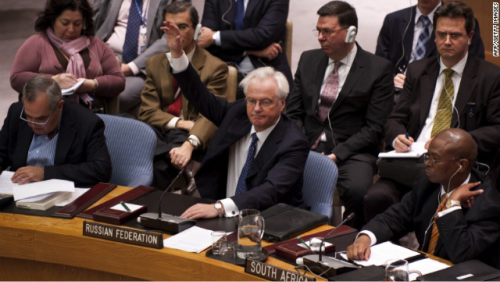
No means no: Why diplomacy is killing Model UN.
Diplomacy. The ancient art of negotiation, tactful communication, and intrigue. When someone asks me, “what even is the difference between Model UN and debating?” my first response (apart from giving them a great big slap) is diplomacy.
Quite rightly, diplomacy has become the watchword of many MUN conferences. More conferences are formally recognising its important through the single-tiered “Diplomacy Award”. It has come to define carefully crafted speeches, tense negotiations and frantic drafting. The spirit of diplomacy also serves as a useful counterbalance brash power delegates, determined to conquer the world, one gavel at a time.
But chairs and secretariats have begun to interpret diplomacy in an odd way. Increasingly, diplomacy has been conflated with being “nice”. Delegates are recognised not for pushing country policy, but for building consensus. Points are given not for deft rebuttal, but inclusive and hollow speech making. And awards are beginning to be assigned not to the “best” delegate, but the kindest.
Why is it a problem? Anyone who has seen a fight over limited spots on a Panel of Authors will surely agree that encouraging delegates to be civil toward one another is a noble aim. And what more effective way of doing so than to design awards to reward diplomacy? Indeed, it is an immutable truth of committee that where awards go, delegates follow.
But beware the law of unintended consequences. Take the “consensus speech”, a vapid and self-serving technique that has become the standard of MUN conferences. The next time you’re in a committee, listen carefully, and I guarantee you’ll hear it. “The topic we face today is grave and urgent”, the delegate begins, attempting to affect an air of gravitas. “We must not be divided, the international community must unite” they continue, as the time ticks towards 60 seconds. “We urge our fellow delegates to work to achieve . . . consensus”. Vomit.
Speeches like these seem harmless enough, but they kill debate. A high level of debate requires point and counter-point, to-and-fro. The consensus speech not only takes time away from delegates who want to defend their ideas or attack another’s policy but discourages delegates from even doing so in the first place. Debate exists to advance and refine good ideas and kill off bad ones; consensus speeches slow the essential process of creative destruction that leads to sensible and substantive draft resolutions. In the most extreme cases, I have encountered delegates who seem to think that their ideas should be added to a DR for inclusivity’s sake alone. Sorry, Chad, but we’re not adding your grassroots campaign to our DR on the latest massacre in Syria. I’m not being undiplomatic, your idea is simply bad. Inclusivity is an important part of diplomacy, but it should not be confused with attempts to build consensus where there isn’t and shouldn’t be any.
Of course, that isn’t to say that delegate shouldn’t seek consensus. Where consensus is realistically achievable, it should be pursued with vigour. Indeed, consensus (or something approaching it) is often possible. But sometimes consensus is unrealistic. The Member States of the UN have many genuine and intractable differences between them and it is the role of delegates at MUN to grapple with those differences. That requires an accurate representation of the conflicting interests of nations, and that itself requires knowing when consensus or even agreement is not within “country policy”. Being diplomatic isn’t about saying “yes” all of the time, it’s about knowing when to say “no”.
Furthermore, I would argue that rewarding for this sort of “diplomacy” doesn’t actually make delegates kinder to one another at all. Awards are always decided by what the chairs see, and when chairs award kindness, inclusivity and consensus, that is what delegates will show them. This pushes the arguments, fights and backstabbing into the long grass of unmods. While rewarding “diplomacy” might discourage intimidating power delegates, it provides a huge boost for would-be Machiavellians. Undermining blocs, negotiating secretive mergers and duping delegates out of Panel of Authors spots all take place outside the view of the chair. Unless these underhanded tactics are so egregious that they are reported, chairs remain blissfully unaware. All that is left is to make some consensus speeches and thank everyone for their contributions on Panel of Authors and you’re virtually guaranteed Distinguished Delegate.
So, what is to be done? Firstly, single tiered awards system are the right way to go. Multi-tiered awards make it difficult to facilitate meaningful and honest collaboration between delegates. Single tiered awards remove many of the incentives to backstab others and impose oneself on a committee, whilst still providing a dose of competitive spirit. Secondly, secretariats and chairs should rethink what diplomacy means. My suggestions would include the ability to defend country policy consistently, even if that means being uncooperative; the insight to recognise when to make a concession and when to draw a red line; and the decisiveness to push forward when other equivocate. Finally, whatever awards system secretariats decide is best, they should communicate it clearly to delegates. Having an awards policy improves transparency, keeps award decisions consistent across committees and helps a conference define its unique “feel”.
Oh, and any delegate who makes the consensus speech should be condemned by the UNSC.


